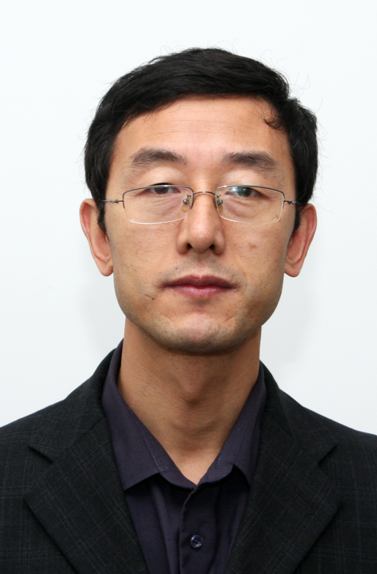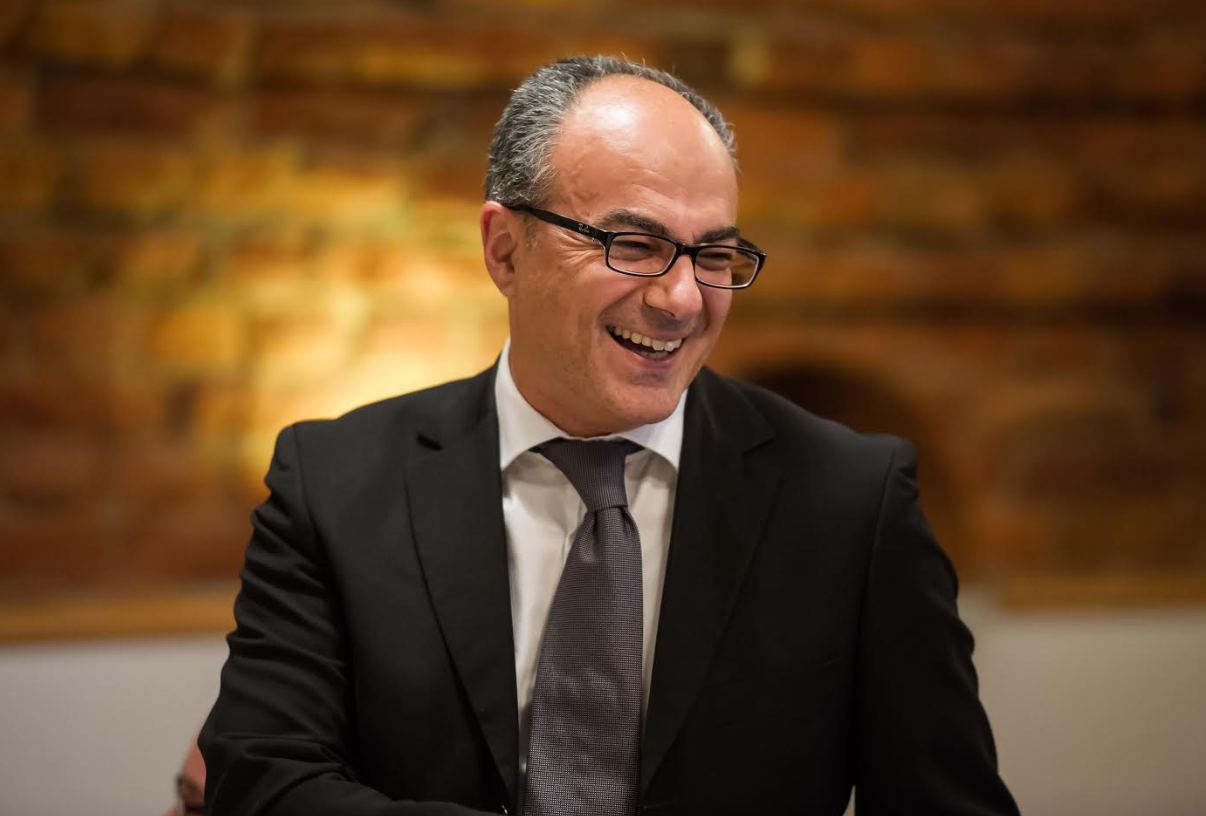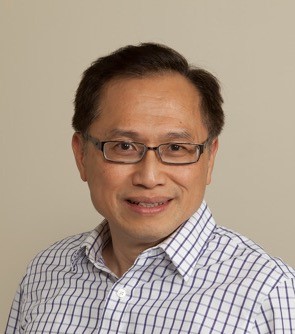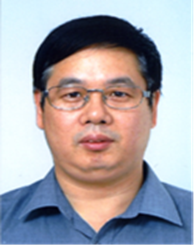| KEYNOTE SPEAKERS |
| TITLE:Internet of Underwater and Underground Things |
 |
| I.F. Akyildiz,IEEE Fellow,Professor,ACM Fellow |
| School of Electrical and Computer Engineering, Georgia Institute of Technology |
| Abstract |
|
Oceanographic data collection, pollution monitoring, offshore exploration, disaster prevention, assisted navigation and tactical surveillance are typical applications for wireless underwater sensor networks. In this talk wireless underwater acoustic communication channel is explored. Magnetic induction for underwater communication will be presented and research challenges are highlighted. The project SoftWater Underwater Communication based on SDN/NFV will be presented. On the other hand, sensor applications in soil media and tunnels have many use cases and have unique communication problems. In particular, the wireless channel pecularities in the underground make communication problems challenging which will be discussed in this talk. Electromagnetic and Magnetic Induction communication paradigms are explored. Future research challenges will be highlighted in both areas. |
| Biography |
|
I.F. AKYILDIZ is the Ken Byers Chair Professor with the School of Electrical and Computer Engineering, Georgia Institute of Technology, Director of the Broadband Wireless Networking Laboratory and Chair of the Telecommunications Group. Dr. Akyildiz is also Megagrant winner in Russia. He is Megagrant lead researcher at the Institute for Information Transmission Problems, Kharkevich Institute, Russian Academy of Sciences in Moscow, Russia since January 2018. Dr. Akyildiz is an IEEE FELLOW (1996) and an ACM FELLOW (1997). He received numerous awards from IEEE and ACM. Due to Google scholar, his papers received over 108+K citations and his h-index is 116 as of August 2019. His current research interests are in Internet of xThings, 5G Wireless Systems, TeraHertz Communication, Nano-Scale Communications and Wireless Sensor Networks in Challenged Environments. |
| Title:Security and Privacy Issues in Deep Learning for Smart IoT |
 |
| Prof. Dapeng Oliver Wu,IEEE Fellow,Editor-in-Chief of IEEE Transactions on Network Science and Engineering |
| University of Florida, USA |
| Abstract |
|
With the recent breakthroughs, arti?cial intelligence, especially deep neural networks, is pervasively serving numerous areas such as healthcare, autonomous driving, and Internet of things. Deep neural networks are capable of making accurate predictions and reasonably good decisions but their predictions or decisions are not explicitly explainable. In particular, major security and privacy concerns exist in deep neural networks. In this talk, I will first provide an overview of trustworthy deep neural networks and then focus on our recent research on a data-agnostic model stealing attack. The talk will conclude by discussing future research directions in security and privacy concerns and potential countermeasures in deep neural networks. |
| Biography |
|
Dapeng Oliver Wu received Ph.D. in Electrical and Computer Engineering from Carnegie Mellon University, Pittsburgh, PA, in 2003. Since 2003, he has been on the faculty of Electrical and Computer Engineering Department at University of Florida, Gainesville, FL, where he is currently Professor. His research interests are in the areas of networking, communications, video coding, image processing, computer vision, signal processing, and machine learning. He received University of Florida Term Professorship Award in 2017, University of Florida Research Foundation Professorship Award in 2009, AFOSR Young Investigator Program (YIP) Award in 2009, ONR Young Investigator Program (YIP) Award in 2008, NSF CAREER award in 2007, the IEEE Circuits and Systems for Video Technology (CSVT) Transactions Best Paper Award for Year 2001, the Best Paper Award in GLOBECOM 2011, and the Best Paper Award in QShine 2006. Currently, he serves as Editor-in-Chief of IEEE Transactions on Network Science and Engineering. He was the founding Editor-in-Chief of Journal of Advances in Multimedia between 2006 and 2008, and an Associate Editor for IEEE Transactions on Communications, IEEE Transactions on Signal and Information Processing over Networks, IEEE Signal Processing Magazine, IEEE Transactions on Circuits and Systems for Video Technology, IEEE Transactions on Wireless Communications and IEEE Transactions on Vehicular Technology. He has served as Technical Program Committee (TPC) Chair for IEEE INFOCOM 2012. He was elected as a Distinguished Lecturer by IEEE Vehicular Technology Society in 2016. He is an IEEE Fellow. |
| Title: Challenges and Opportunities in AIoT-enabled Smart City |
 |
| Keqiu Li,Professor,the recipient of National Science Foundation for Distinguished Young Scholars of China |
| Tianjin University |
| Abstract |
|
Smart city uses infrastructure, data, service of AIoT to provide us with the safe, efficient and intelligent life experience. However, we still face some key challenges on the way towards future smart city. First, numerous IoT devices cannot be seamlessly connected due to heterogenicity, which causes intelligence debris and information island. Second, privacy leakage issues attract more and more attention as effective privacy protection mechanisms cannot be applied on most IoT devices. Third, the current city services are developed separately, and we miss the chance to gain informative sights from the integrated smart city services. In this talk, Prof. Li will explain how to deal with the above challenging issues from the perspectives of devices, mechanisms, and platforms, respectively. Finally, the potential opportunities hidden in smart city and future research directions will be discussed. |
| Biography |
|
Keqiu Li is currently a full professor, the dean of the College of Intelligence and Computing, Tianjin University, China. He is the recipient of National Science Foundation for Distinguished Young Scholars of China. He received his bachelor?s and master?s degrees from the Department of Applied Mathematics at the Dalian University of Technology in 1994 and 1997, respectively. He received the Ph.D. degree from the Graduate School of Information Science, Japan Advanced Institute of Science and Technology in 2005. He keeps working on the topics of mobile computing, datacenter, and cloud computing. He has more than 150 papers published on prestigious journals or conferences such as TON, TPDS, TC, TMC, INFOCOM, ICNP, etc. |
| Title: Edge Intelligence - Edge Computing and Artificial Intelligence |
 |
| Schahram Dustdar ,Professor,IEEE Fellow,co-Editor-in-Chief of ACM TIoT |
| University of Vienna, Austria |
| Abstract |
|
With the advent of Edge Computing and the coming of age of Artificial Intelligence, there is a strong demand to integrate Edge Computing and AI, which gives birth to Edge Intelligence. In this article, we divide Edge Intelligence into AI for Edge (Intelligence-enabled Edge Computing) and AI on Edge (Artificial Intelligence on Edge). In this talk we will discuss on giving insights into this new inter-disciplinary field from a broader vision and perspective. We discuss the core concepts and the research roadmap, which should provide the necessary background for potential future research programs in Edge Intelligence. |
| Biography |
|
Schahram Dustdar is Full Professor of Computer Science heading the Research Division of Distributed Systems at the TU Wien, Austria. He holds several honorary positions: University of California (USC) Los Angeles; Monash University in Melbourne, Shanghai University, Macquarie University in Sydney, and University of Groningen (RuG), The Netherlands (2004-2010). From Dec 2016 until Jan 2017 he was a Visiting Professor at the University of Sevilla, Spain and from January until June 2017 he was a Visiting Professor at UC Berkeley, USA. From 1999 - 2007 he worked as the co-founder and chief scientist of Caramba Labs Software AG in Vienna (acquired by Engineering NetWorld AG), a venture capital co-funded software company focused on software for collaborative processes in teams. Caramba Labs was nominated for several (international and national) awards: World Technology Award in the category of Software (2001); Top-Startup companies in Austria (Cap Gemini Ernst & Young) (2002); MERCUR Innovation award of the Austrian Chamber of Commerece (2002). He is founding co-Editor-in-Chief of the new ACM Transactions on Internet of Things (ACM TIoT) as well as Editor-in-Chief of Computing (Springer). He is an Associate Editor of IEEE Transactions on Services Computing, IEEE Transactions on Cloud Computing, ACM Transactions on the Web, and ACM Transactions on Internet Technology, as well as on the editorial board of IEEE Internet Computing and IEEE Computer. Dustdar is recipient of the ACM Distinguished Scientist award (2009), the IBM Faculty Award (2012), the IEEE TCSVC Outstanding Leadership Award (2018), the IEEE TCSC Award for Excellence in Scalable Computing (2019). an elected member of the Academia Europaea: The Academy of Europe, where he is chairman of the Informatics Section, as well as an IEEE Fellow (2016). |
| Title: Drone-assisted Mobile Edge Computing |
 |
| Nirwan Ansari,Distinguished Professor, IEEE Fellow, NAI Fellow, Associate Editor-in-Chief of IEEE Wireless Communications Magazine. |
| New Jersey Institute of Technology (NJIT) |
| Abstract |
|
In mobile access networks, different types of Internet of Things (IoT) devices (e.g., sensor nodes and smartphones) will generate vast traffic demands, thus dramatically increasing the traffic loads of their connected access nodes, especially in the 5G era. Mobile edge computing enables data collected by IoT devices to be stored in and processed by local fog nodes as well as allows IoT users to access IoT applications via these nodes at the same time. In this case, the communications latency critically affects the response time of IoT user requests. Owing to the dynamic distribution of IoT users, drone base station (DBS), which can be flexibly deployed over hotspot areas, can potentially improve the wireless latency of IoT users by mitigating the heavy traffic loads of macro BSs. Drone-based communications poses two major challenges: 1) DBS should be deployed in suitable areas with heavy traffic demands to serve more users; 2) traffic loads in the network should be allocated among macro BSs and DBSs to avoid instigating traffic congestions. Therefore, we propose a TrAffic Load baLancing (TALL) scheme in such drone-assisted fog network to minimize the wireless latency of IoT users. In the scheme, we divide the problem into two sub-problems and design two algorithms to optimize the DBS placement and user association, respectively. Extensive simulations have been set up to validate the performance of TALL. |
| Biography |
|
Nirwan Ansari, Distinguished Professor of Electrical and Computer Engineering at the New Jersey Institute of Technology (NJIT), received his Ph.D. from Purdue University, MSEE from the University of Michigan, and BSEE (summa cum laude with a perfect GPA) from NJIT. He is a Fellow of IEEE and a Fellow of National Academy of Inventors. He authored Green Mobile Networks: A Networking Perspective (Wiley-IEEE, 2017) with T. Han, and co-authored two other books. He has also (co-)authored more than 600 technical publications. He has guest-edited a number of special issues covering various emerging topics in communications and networking. He has served on the editorial/advisory board of over ten journals including as Associate Editor-in-Chief of IEEE Wireless Communications Magazine. His current research focuses on green communications and networking, cloud computing, drone-assisted networking, and various aspects of broadband networks. He was elected to serve in the IEEE Communications Society (ComSoc) Board of Governors as a member-at-large, has chaired some ComSoc technical and steering committees, is current Director of ComSoc Educational Services Board, has been serving in many committees such as the IEEE Fellow Committee, and has been actively organizing numerous IEEE International Conferences/Symposia/Workshops. He is frequently invited to deliver keynote addresses, distinguished lectures, tutorials, and invited talks. Some of his recognitions include several excellence in teaching awards, a few best paper awards, the NCE Excellence in Research Award, several ComSoc TC technical recognition awards, the NJ Inventors Hall of Fame Inventor of the Year Award, the Thomas Alva Edison Patent Award, Purdue University Outstanding Electrical and Computer Engineering Award, the NCE 100 Medal, and designation as a COMSOC Distinguished Lecturer. He has also been granted more than 40 U.S. patents. |
| Title: IoT + AI: Challenges and Research Opportunities |
 |
| Huadong Ma,Professor,IEEE Editorial Board Member of Internet of Things Journal,Chair of ACM SIGMOBILE China |
| Beijing University of Posts and Telecommunications |
| Abstract |
|
The Internet of Things (IoT) has been widely considered as the kernel technology for sensing the physical environments and providing smart services further. At the same time, the rapid development of Artificial Intelligence (AI) brings many opportunities to IoT. In this talk, we first introduce the challenges of intelligent Internet of Things. Combing AI theory, we discuss some explorations and recent research progresses on smart sensing, learning-based transmission and intelligent service in the IoT environment. Finally, we outline the prospects of IoT development in the era of Artificial Intelligence. |
| Biography |
|
Dr. Huadong Ma is a Professor and Executive Dean of School of Computer Science, Beijing University of Posts and Telecommunications (BUPT), China. He is also Director of Beijing Key Lab of Intelligent Telecommunications Software and Multimedia, BUPT. He is Chief Scientist of the project ?Basic Research on the Architecture of Internet of Things? supported by the National 973 Program of China from 2010 to 2013. He received his PhD degree in Computer Science from the Institute of Computing Technology, Chinese Academy of Science in 1995. From 1999 to 2000, he held a visiting position in the EECS Department, The University of Michigan, Ann Arbor, USA. His current research focuses on sensor networks and Internet of things, multimedia computing, and he has published over 300 papers in journals (such as ACM/IEEE Transactions) or Conferences (such as ACM SIGCOMM,MOBICOM,MM) and 5 books on these fields. As a co-author, he got the 2019 Prize Paper award of IEEE Transactions on Multimedia and the 2018 Best Paper Award from IEEE MultiMedia. He was awarded National Funds for Distinguished Young Scientists in 2009, the Natural Science Award of the Ministry of Education, China in 2017. He is an Editorial Board Member of the IEEE Transactions on Multimedia, IEEE Internet of Things Journal, and ACM Transactions on Internet of Things. He serves for Chair of ACM SIGMOBILE China. |
Created and Maintained by IEEE SmartIoT2020
